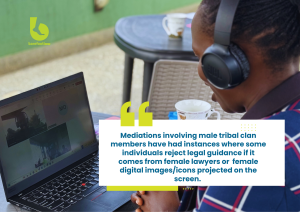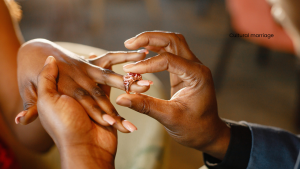BAREFOOTLAW CRIMINAL JUSTICE FAQS:
WHAT HAPPENS WHEN A CRIME IS COMMITTED?
CRIME 101
- What is a crime?
A Crime is any conduct that is forbidden by the state and to which a punishment has been attached.
- If I cheat at school, is it a crime?
No, cheating at school is not a crime. However, it could be seen as a breach of the acceptable school rules, guidelines, or regulations about sitting examinations and may entitle you to the school penalties such as expulsion from the school.
- When are you said to have committed a crime?
You are said to have committed a crime when you do something that is prohibited by law. For example, the law does not allow you to beat other people, if you beat your neighbour then you are said to commit a crime known as assault.
If you also fail to do what the law requires you can be said to commit a crime. For example, you are required to look after your children and you refuse, then this omission (failure to act) is also a crime called child neglect. where a conviction by a competent court is made or pronounced stating that a person intentionally committed an unlawful act against the state.
- Who is a criminal?
A criminal is the title given to a person who is convicted of an offence by a competent court. Before you are convicted by court, you are only a person accused of that crime.
- If I tell a boda boda to avoid a road checkpoint, am I a criminal?
You can participate in a crime in three different ways. One is by actually doing the prohibited act. Two by helping someone else commit the act that constitutes the crime. You can also encourage someone to do the wrong thing. This last one is called abetting. Therefore, if you know that the boda boda is headed towards a checkpoint because he/she is in the wrong and you assist him/her to dodge it then you may be liable for the crime because you abetted the commission of that offence.
- What about if the president declares something is a crime, can I be prosecuted for it?
No, the president is part of the government arm known as the Executive. The part of government responsible for the making laws about crimes is the legislature or the ministries. Therefore, if the President says that something should not be done, then the responsible ministry can follow up and come up with a law that prohibits that. For example, when the lockdown was announced, the president made several directives to combat COVID, and the Ministry of Health had to make a law on public health to back these up. However, if there is no law then this cannot be a crime. For example, if he says those who walk without masks will be tried for murder, then this cannot be a crime of murder because there is no law that provides for that.
- Does a crime ‘expire’?
No, it does not. There is no expiry date (this is called a statute of limitation) on any criminal offence that you have been charged with in Uganda.
If you are charged with a crime, then there is no expiry date on it, even if you take 10 years in hiding and return, the charges against you can be resurrected and you face the law.
- What is the difference between a national and international crime?
By law (international law this time) all countries are independent of each other and therefore have powers to make laws that govern their citizens. Because of this, they can decide which court is deemed as unlawful and should be punishable. If a person commits some of these crimes, they have committed a crime under the national law.
On the other hand, the countries of the world have over time agreed on certain crimes that affect everyone in the world and deemed them as international crimes. Examples include crimes against humanity, war crimes, genocide, piracy etc. These are international crimes which any country can arrest and prosecute an individual for whether they are citizens or not if they are within that country that has agreed to prosecute those crimes.
- Who is a suspect and how different is this from a criminal?
A suspect is a person who may or may not have committed a crime and the police are investigating to ascertain if he/she in fact did. A criminal on the other hand, is someone who has been charged, prosecuted, and convicted of the offence by a court of law.
- What about an accused person? (PENNIE)
An accused person is someone who has been formally charged with a crime but has not yet been convicted in the courts of law. This happens after the Director of Public Prosecution (DPP) has authorized the prosecution of that person.
ARRESTS
- If I get someone arrested, am I supposed to feed him/her?
No, you are not supposed to feed the person whose crime you reported to police. This is because the police have a budget set aside to feed suspects who are remanded at the police station. If the person is then remanded to the prison, the Uganda prison service is responsible for their wellbeing, not you who reported the case.
- Do police need permission from me to release a person I reported?
NO! The police do not need your permission to release a suspect you reported.
This is because even a suspect (the person you reported for an alleged crime) still retains the right to be released after 48 hours after their arrest if they have not been charged and the law still presumes that they are innocent until they can be proven guilty in a court of law. Because they are still ‘innocent’ you cannot take away their rights given by the constitution.
As a courtesy, the police may inform you that they are going to release the suspect on police bond so that you do not think that they ‘escaped’ from police custody, or the case has been closed.
- If I am reported for a crime, when do I expect to be arrested?
This depends on different circumstances such the nature of the crime (is it ‘serious’ (felony), or ‘‘minor’ (this is called a misdemeanour in law), is the crime ongoing? Are you a danger to other people, or yourself, or might you run away before the police finishes its investigations? Based on some of these questions, the police may decide to arrest you immediately and keep you in custody while they carry out their investigations or leave. However, if the crime is then the police may leave you in the community while they carry out their investigations. that you were reported
- If I go to police to make a statement can I be arrested?
This depends on the stage of the investigations at police, and the nature of the crime you are charged with. If the police determines that what you have said in your statement is incriminating, then they can arrest you and detain you. If the investigations are still in their early stages, they may choose to let you go home and arrest you if their investigations conclude that you might indeed be the suspect the police are looking for.
- What is the difference between a charge and an arrest?
An arrest is when a person is taken into police custody either because they are suspected to have committed a crime, to be about to commit one or to protect other people from danger. Someone who is arrested does not necessarily have to be charged. The police may choose to release them.
A charge is a formal accusation of a crime against a person. To be charged is when the Director of Public Prosecution (DPP) decides that you must answer for certain crimes and authorizes those formal allegations (charges) to be formally brought up against you in a court of law. For example, you may be a suspect in a theft. However, when the investigations are carried out and there is enough evidence to show you may have committed the theft, the (Director of Public Prosecutions also known as the state attorney) will decide that you must answer for the theft in a court of law.
- Can I be arrested from outside the district where I committed the crime?
Yes, you can. A crime that is committed in Uganda, is a crime against the state NOT the district. Although some suspects run away from the districts where they committed their crimes, the police can look for them, arrest them and bring them back to the district where they committed the crime so that the court can hear the case against them.
- When can I confess and what does it mean when I do?
A confession is an admission of a crime that must be done voluntarily without coercion or force from someone else. Therefore, the law requires that it should be done before a magistrate so that the court can be sure that this was done voluntarily.
If a person wants to make a confession, the police officer should take him/her before a magistrate and leave the room so that the suspect or a prisoner can admit to the guilt of their actions and allow the magistrate to gauge if this admission is voluntary. This should be done in a language the person understands and signed. Once this is done, the person can be handed back to police.
- When do I make a statement?
A statement is a written account of a person’s version of events regarding an alleged crime or event. When you report a crime, witness a crime, you are a victim to a crime, you may be contacted by police and required to give an account of what you witnessed or your version of the occurrence on a given day or time. When you make this statement, you must sign and date it to show you have given it voluntarily. a statement regarding a crime that they think you have knowledge of.
- What rights do you have as a suspect?
As a suspect of a crime, you have many rights including.
- The right to be informed immediately in a language you understand of the reasons for the arrest or detention at a police station.
- The right to inform and call a lawyer of your choice.
- The right to be taken to court as soon as possible, not later than 48 hours from the time of your arrest. If this is not possible, you have a right to be released on police bond.
- you have a right to inform or have your next of kin informed as soon as practicable of the arrest. If you have no phone, you can request the police to do so.
- the police should allow you reasonable access to speak to your Next of kin, lawyer and/or personal doctor and tend to any health emergency or prepare your defense.
- you also have a right to access medical treatment at your request and your cost to private medical treatment.
- if it turns out that you were falsely arrested or accused, you have a right to compensation from the person who accused you falsely of the criminal offence.
- Are the police allowed to beat me when they arrest me?
Police are not supposed to beat you when you are being arrested. You are supposed to be informed that you are under arrest and the rights of an arrested person spelled out to you (what we call the “Miranda clause”).
However, if you blatantly resist the arrest, reasonable force may be applied by the police officers.
- Is every suspect supposed to be ‘manhandled’ or handcuffed?
No. The law says that any person being arrested should only be restrained as far as is necessary to prevent them from escaping from police custody. Therefore, not every suspect must be handcuffed when effecting arrest. This depends on how cooperative the suspect is. If a person opts to cooperate with the police officers and follow them willingly, there is no need to handcuff the person, however if you decide to run, they may not only handcuff you, but may have to take additional measures to restrain you such as by tying your legs as well.
INVESTIGATIONS AND PROSECUTION
- Where and at what point should you report a crime?
You should always report a crime at the nearest police station or the police station in the area where the crime was committed. The crime should be reported immediately you see it has been committed unless it is not safe to move from where you have witnessed it. If you did not see it being committed, you should report it the moment you realize or suspect the crime has been or is about to be committed.
- If there was more than one person involved in a criminal act, who do I report to the police?
You are required to report all the people that were involved or participated in a criminal act that you witnessed. For example, if you saw Cain and his friend Envy beating Abel, then you must inform police that you have witnessed Cain together with Envy engaged in assaulting poor Abel. You cannot choose what you say or did not see.
- Can I report a crime at any police station?
Yes, you can, but it would not be practical to witness a crime in Kampala and travel to Gulu to report it. A crime must be handled by the courts where it was committed. This is what is called jurisdiction. So, it is easier to report that matter at any police in that area where the crime happened or is suspected to have occurred. If there is no police station in sight, then you report the crime at the first police post that you find, and they can guide you on how to proceed.
- Are you supposed to keep checking at police (follow up) for the prosecution?
No, it is the duty of the police and the office of the DPP to handle this case once it reported or forwarded to them by speedily following up the investigations and inform you when you are required to appear before court as a witness. However, since the case involves you, it is wise to check in at police to find out how far they have gone with investigations. That way you will be able to notice and act if there is any delay in handling the investigations of your police or with the state attorney’s office.
- Am I expected to ‘finance’ the progress and investigation of my case?
No, a person who reports a crime (called the complainant), is not required to finance the investigation and moving of the files for the case that he/she reported. There is a national budget for the carrying out of investigations and salaries of police officers for doing their jobs.
- How long must investigations take?
An investigation is simply an examination of facts or circumstances by the Criminal Investigations Department of police. Although the law does not specifically provide a time limit within which an investigation should be carried, it is important that they are carried out as speedily and efficiently as possible so that the justice is served within the shortest time possible. This is the basis of the right to a fair and speedy trial (from the constitution). This is because justice delayed is justice denied.
We must remember that there is a victim and a suspect who are both looking at justice to be served. Sometimes this suspect may be wrongly accused and cannot resume their usual way of living until they are exonerated of the crime, or the victim would like closure by seeing the accused person punished for their crime. As a result, they should both be given a chance to see that justice is served.
- Are agreements made ‘behind bars’ legal?
This depends on the circumstances and the things being agreed upon in this agreement.
According to the contract law (law governing agreements), for two people to have a valid agreement, they must want to enter this agreement freely and voluntarily without coercion or undue influence. Imagine if you get someone arrested and then proceed to ask them to agree to give up their claim over a certain piece of land both of you have claimed. Since this person is ‘behind bars’ and you (seemingly) have the police on your side, this person is likely to say yes and agree to what you have asked. However, for any reasonable person who is seeing this interaction from the side, that person is unlikely to believe that this was a voluntary agreement without any coercion, or if the suspect would have agreed to this if they had not been detained by police.
Unfortunately, this is the nature of many agreements reached with suspects who are detained by police, therefore it more likely that this person can argue against how enforceable this agreement is once they have been set free.
On the other hand, if this person had a business deal that was separate from the circumstances of arrest and the person the suspect is dealing with is not involved in his/her arrest, this agreement will be deemed valid since there is no duress or undue influence on the suspect. For example, if the suspect intended to sell his car and unfortunately got arrested and someone finds him a buyer who comes to the cells to visit and they agree on this, this may be a valid agreement since the buyer does not have any knowledge or power over the suspect.
- If I report a crime, but decide that I want to withdraw my case will the police continue without me?
As a person you do not have the authority to do so. This authority lies with the DPP / State Attorney who must be given a justifiable reason why he/she should withdraw the case from prosecution. Therefore, if you are no longer interested in pursuing the case, you should present your reasons to the DPP’s office.
- Can the person I reported sue me if he/she wins the case in court?
Yes, the person can sue you if the case is dismissed for absence of evidence and for having no basis. If the case was instituted (reported to police) by you without any reasonable justification for reporting it, this is called malicious prosecution and the person may have a right to sue you if the court finds that the charges that were brought were baseless and unfounded.
- When my case ‘leaves police’, where do I go to check its progress?
Your case can only leave the police when the investigations are complete. When the investigations are complete, the file (your case) is sent to the Office of the Resident State Attorney so that the DPP can decide whether there is enough evidence in the file to take the case to court.












